Warsaw, the capital of Poland, is a fascinating city with a distinct character. A harmonious mix of old and new architectural styles reflects the city’s tumultuous past and resilience to rebuild after the destruction of World War II. Exploring this vibrant metropolis will help you understand why it’s called the “Phoenix City.” If you’re looking for the best areas to stay in Warsaw, you’ve come to the right place.
Warsaw offers a wealth of attractions and has seen a steady increase in visitors over recent years. The Royal Castle, Wilanów Palace, and the picturesque Old Town are must-visit spots, showcasing Poland’s rich cultural heritage. Given its thriving tourism industry, Warsaw has a well-developed hospitality sector offering accommodations for varying budgets, from the most luxurious five-star hotels to affordable properties.
As a major cultural and economic hub in Eastern Europe, Warsaw has something to offer everyone. The city’s rich history can be explored through world-class museums like the POLIN Museum of the History of Polish Jews and the Warsaw Uprising Museum. Additionally, attracting business travelers preparing for meetings at international corporations or attending conventions makes Warsaw an important commercial center. Lastly, the city is well-established as an epicenter for arts and nightlife, boasting magnificent opera houses, theaters, and countless bars and clubs.
We encourage you to continue reading this post to learn more about Warsaw’s best areas to stay in and delve deeper into everything this incredible city has to offer during your visit.
Accommodation Options in Warsaw, Poland
If you don’t have time to read the full article, this summarizes our recommended districts for travelers to Warsaw. Keep reading to learn more about each of these city areas.
- Best area for sightseeing: Stare Miasto (Old Town)
- Best area for food & nightlife: Śródmieście (Centrum)
- Best area for families: Praga-Północ
- Cheapest area to stay: Mokotów | Praga-Południe
- Best area for business travelers: Woła
What’s the Best Area to Stay in Warsaw, Poland?
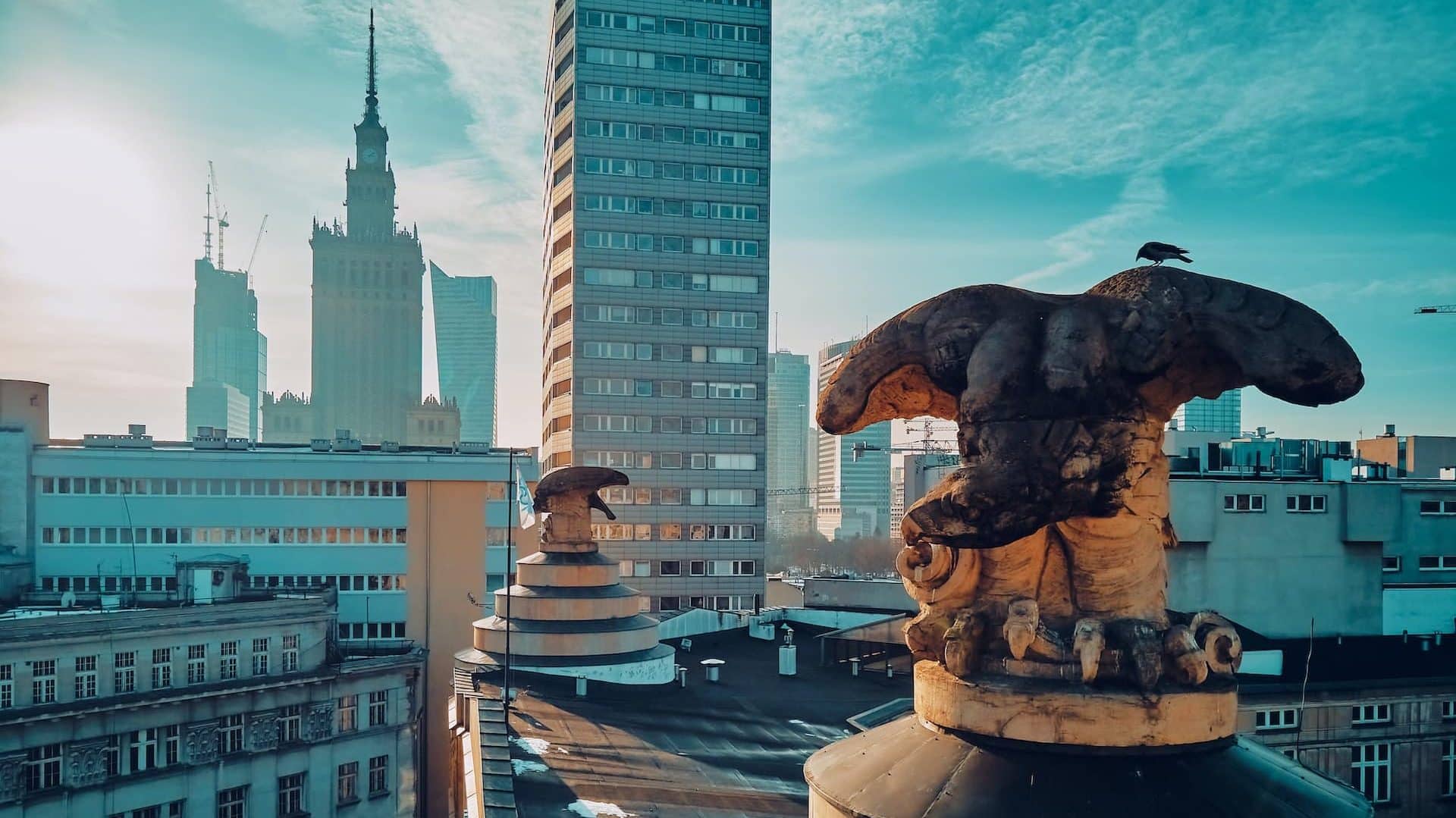
The best area to stay in Warsay is Śródmieście. This vibrant neighborhood offers a mix of historical landmarks, such as the Royal Castle and Wilanów Palace, as well as modern attractions like the Palace of Culture and Science. If you’re a foodie, you’ll enjoy exploring the district’s wide variety of restaurants, bars, and cafes representing local and international cuisine. With its excellent public transportation options and proximity to many must-see attractions, staying in Śródmieście is an excellent option for first-time visitors. Śródmieście is also where some of the best-rated hotels in Warsaw can be found.
Find available accommodation in Śródmieście.
Best Hotels in Śródmieście
- Best 5-star hotel: Hotel Verte, Warsaw, Autograph Collection
- Best 4-star hotel: PURO Warszawa Centrum
- Best 3-star hotel: Motel One Warsaw-Chopin
- Best budget hotel: Hotel Chmielna Warsaw
- Best B&B: Castle Inn
- Best tourist apartments: SleepWell Boutique Apartments
- Best hostel: Deja Vu Hostel
Where to Stay in Warsaw for Sightseeing, Business, or Nightlife
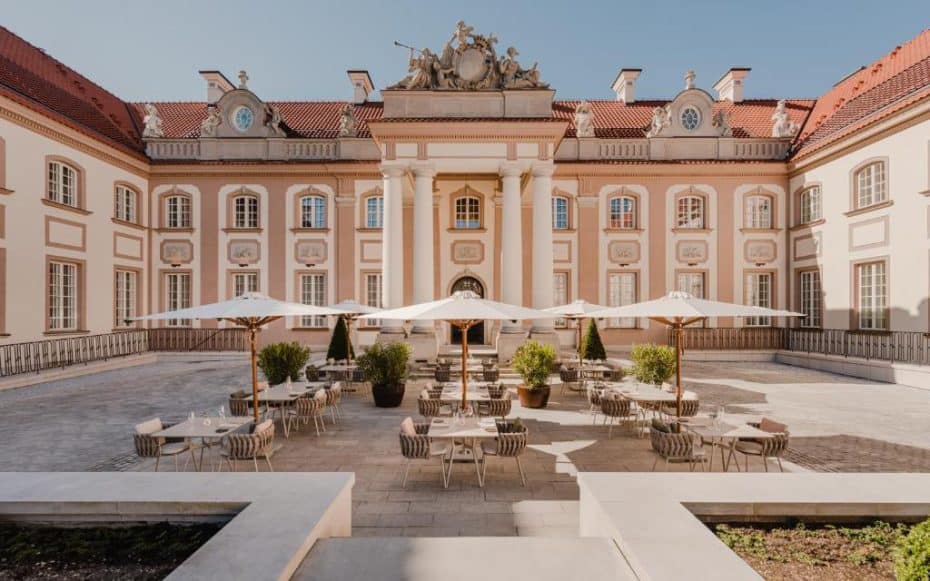
As mentioned above, the district of Śródmieście (Centrum) is the best location to stay in Warsaw. That said, there are many more areas offering different vibes and sights. These are some of the best districts to stay in Warsaw:
- Stare Miasto, or Old Town, is a picturesque area with historical charm. The charming cobblestone streets have colorful buildings, cozy cafes, and unique shops. Home to many historical attractions, staying in Stare Miasto allows visitors to immerse themselves in Warsaw’s history. Our favorite properties here are Hotel Verte and MONDRIAN Luxury Suites & Apartments.
- Śródmieście, also known as Centrum, is the heart of Warsaw and an excellent area to stay when exploring the city. This district is home to many of Warsaw’s popular attractions, such as the Royal Castle, Wilanów Palace, and the National Museum. The area also offers a wide variety of dining options, shopping centers, and entertainment venues. Great hotels here include the Raffles Europejski Warsaw and Motel One Warsaw-Chopin.
- Woła is an up-and-coming district located just west of Śródmieście. This area offers a mix of residential neighborhoods, business areas, and cultural hotspots like the Warsaw Uprising Museum and Pawiak Prison Museum. The Crowne Plaza – Warsaw – The HUB is a hotel worth checking out.
- Mokotów features various parks, such as Łazienki Park and Morskie Oko Park, and houses embassies and several international companies, making it a popular area for business travelers. Top hotels here include the Holiday Inn Express Warsaw – Mokotow and Hotel Mokotów.
Where to Stay in Warsaw: District by District
1. Stare Miasto
Picture-perfect area to stay in Warsaw
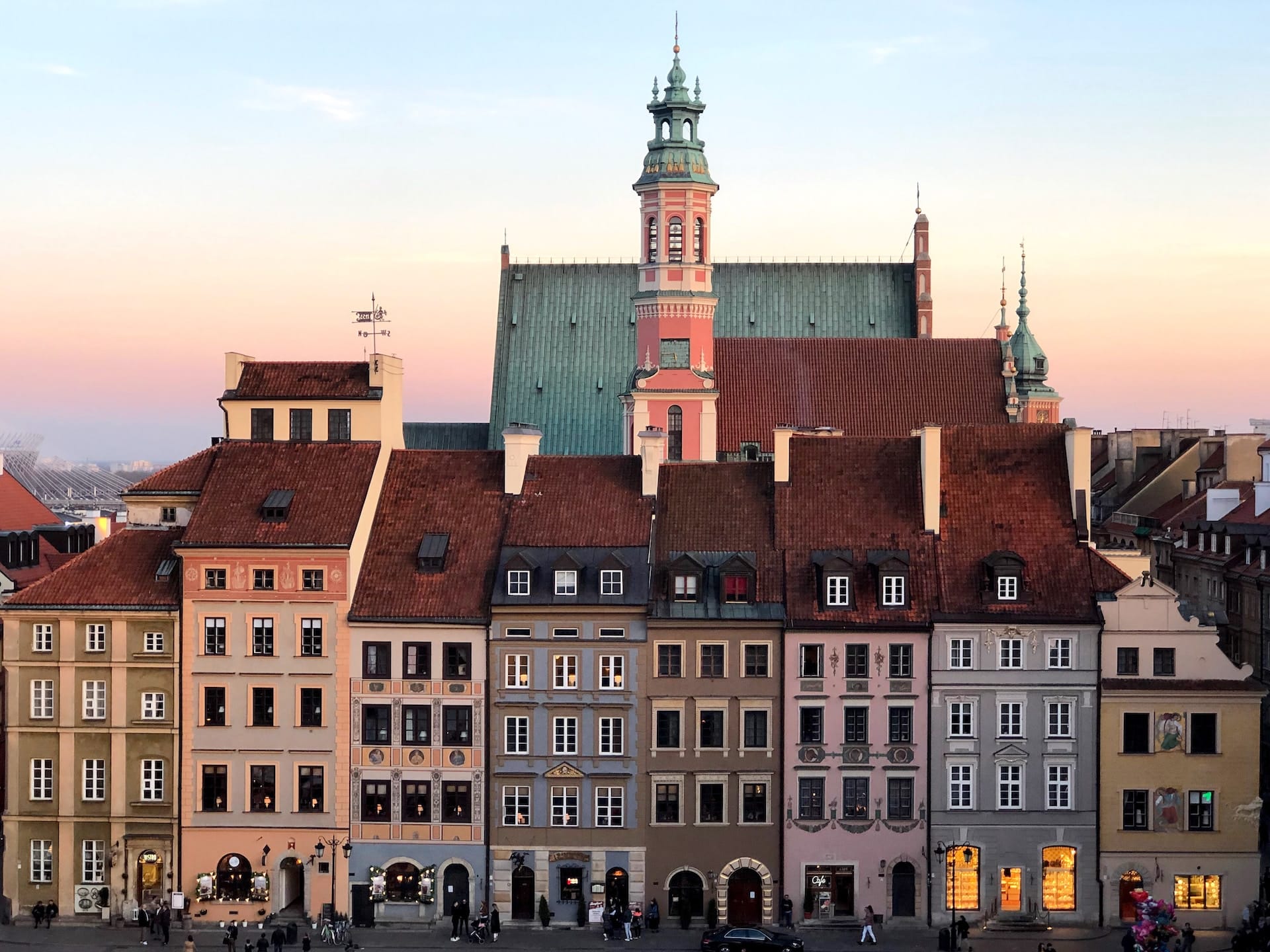
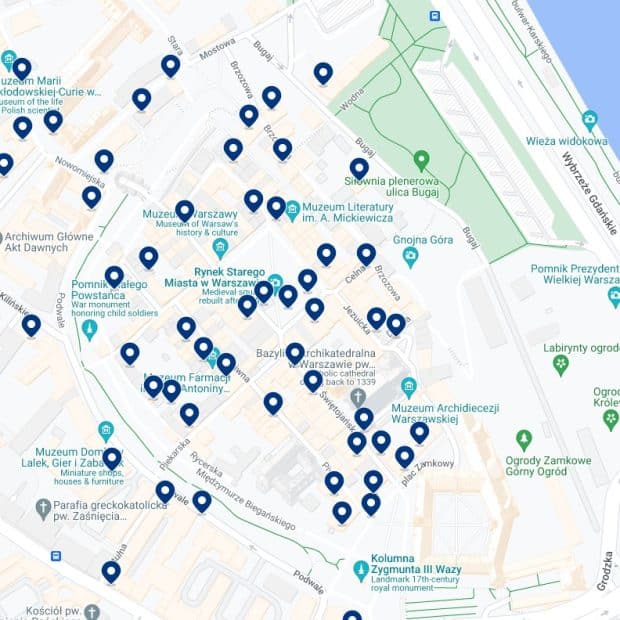
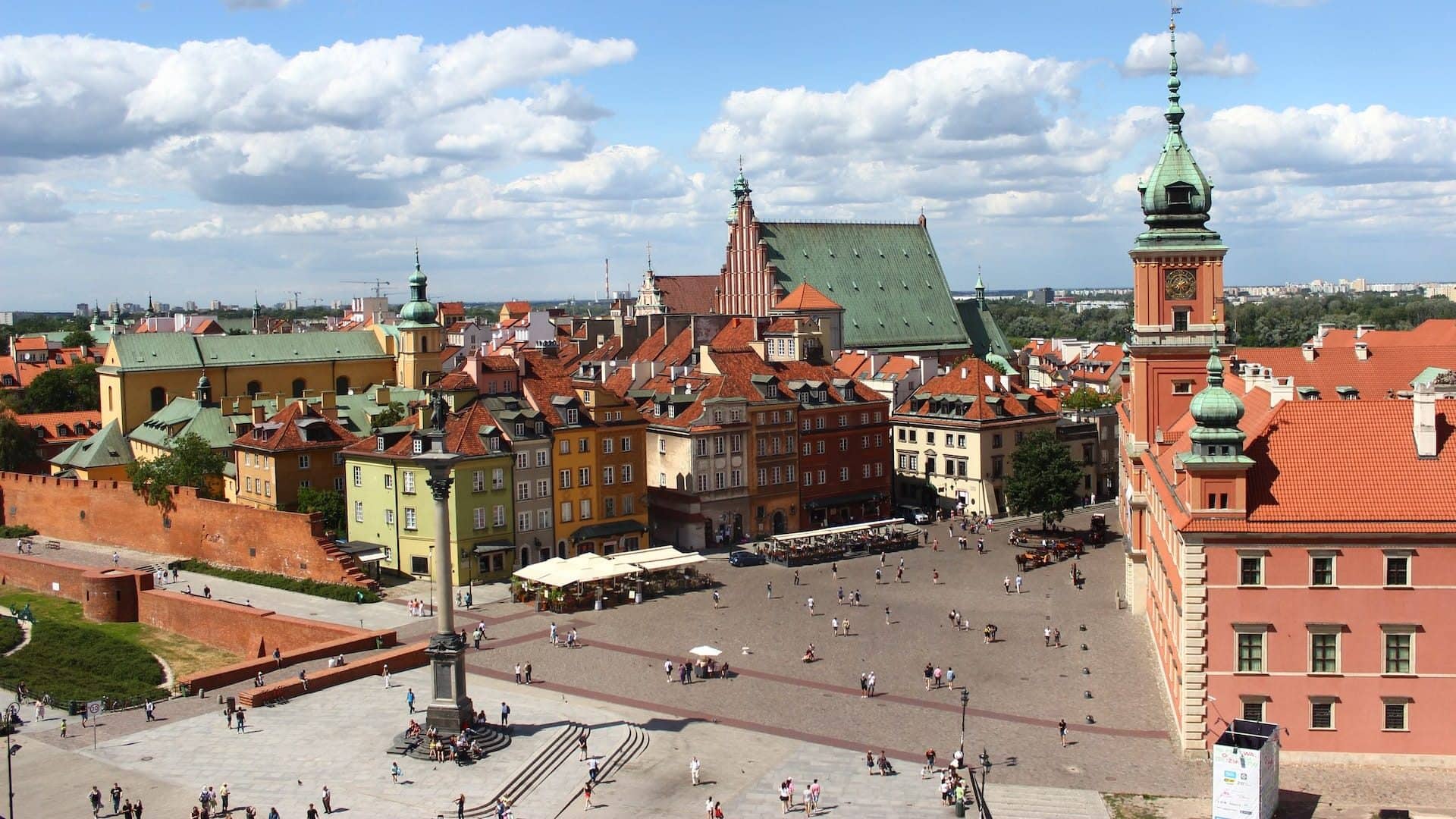
Situated on the left bank of the Vistula River, Stare Miasto is a UNESCO World Heritage Site and the best quarter to stay in Warsaw.
-
Why is this the best area to stay in Warsaw, Poland:
- Rich historical heritage
- Vibrant cultural scene
- UNESCO World Heritage Site
- Close proximity to major attractions
- Charming streets
- Picturesque buildings
- Royal Palace
- Market Square
- Easy access to public transportation
Stare Miasto, or the Old Town of Warsaw, Poland, holds significant historical value as a UNESCO World Heritage site. This lovely district is the city’s oldest part and is located on the Vistula River’s left bank, offering visitors unparalleled access to some of Warsaw’s most important landmarks.
The history of Stare Miasto is marked by a series of events that left an indelible mark on its landscape. Founded in the 13th century and rebuilt in its entirety after World War II, the Old Town Square now depicts a faithful restoration of its pre-war appearance. The Royal Castle and St. John’s Arch Cathedral are among the notable reconstructed monuments in this area.
Strolling along the cobblestone streets, you can find several key attractions, such as the Mermaid Statue, Market Square, and the Barbican fortress. The Royal Route connects Stare Miasto with Wilanów Palace and Lazienki Park to the south, making it easy to discover breathtaking architecture from various eras. Cultural institutions such as the Adam Mickiewicz Museum of Literature also lie nearby.
In terms of nightlife, Stare Miasto has quiet streets lined with charming cafes and restaurants offering authentic Polish cuisine. Live music is often found in local bars during evenings, while the area’s quieter corners are ideal for those seeking tranquility.
Adequate public transportation is available in Stare Miasto; buses serve the area extensively, connecting it with other parts of Warsaw. The Old Town is also within walking distance from many central locations in the city.
Accommodations in this district encompass mainly boutique and luxury hotels and guesthouses set within historic buildings. While room rates tend to be higher than anywhere else in the city, the district’s proximity to major attractions makes it highly convenient.
Best Hotels in Stare Miasto (Warsaw)
2. Śródmieście (Centrum)
Best area to stay in Warsaw for tourists
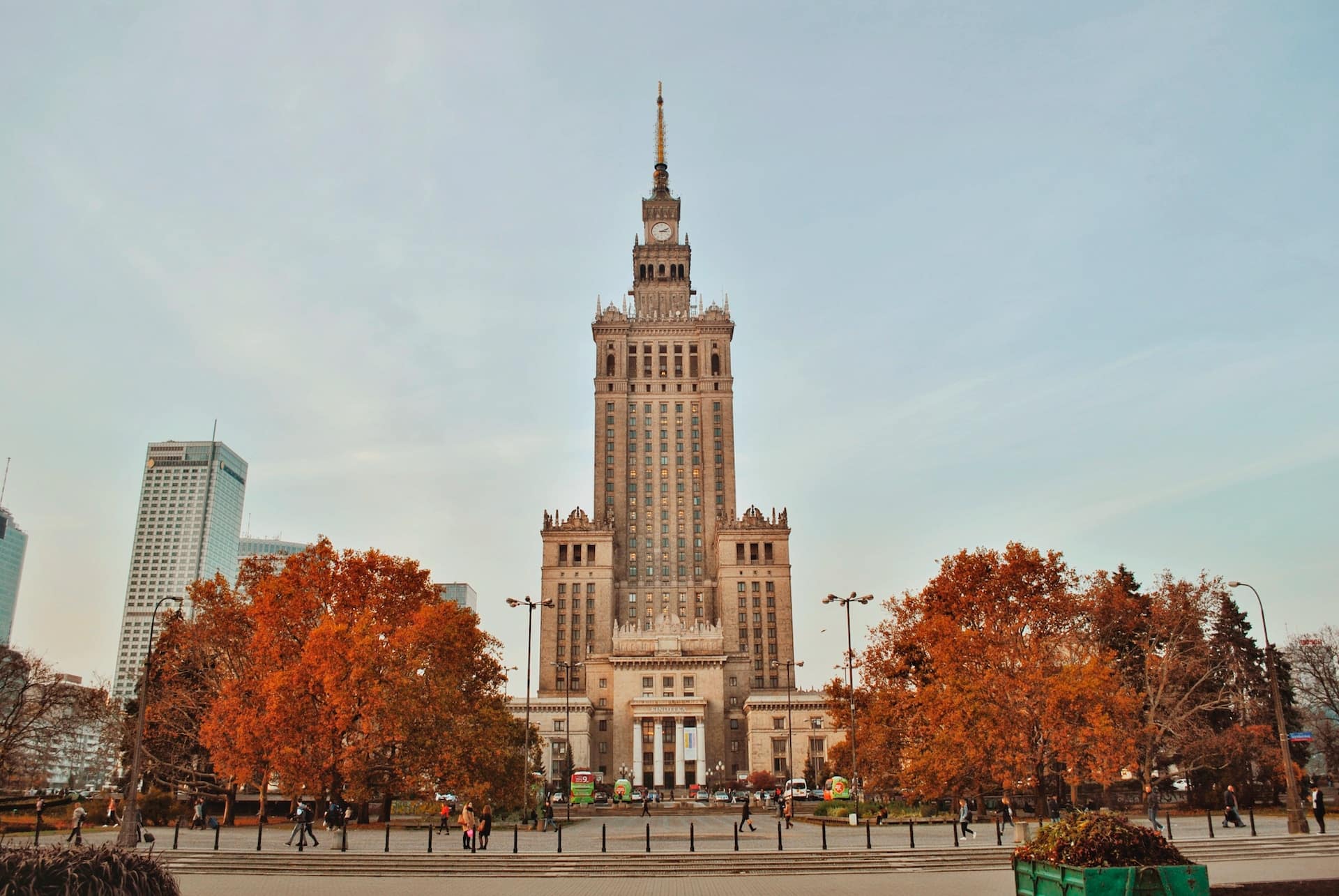
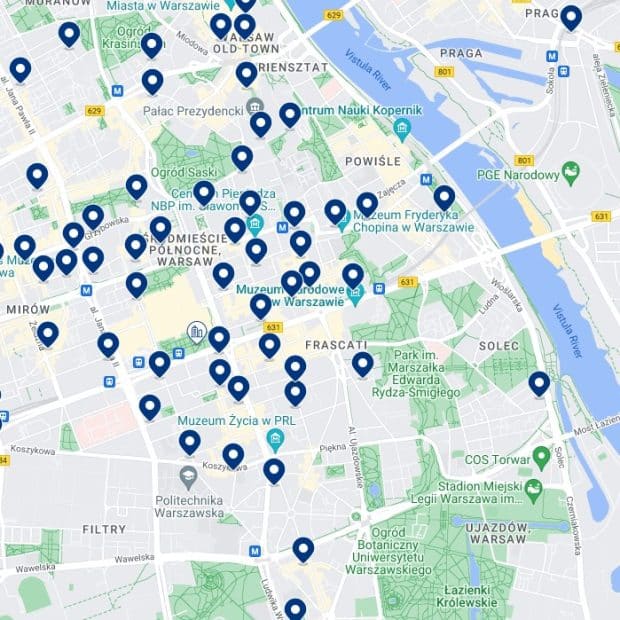
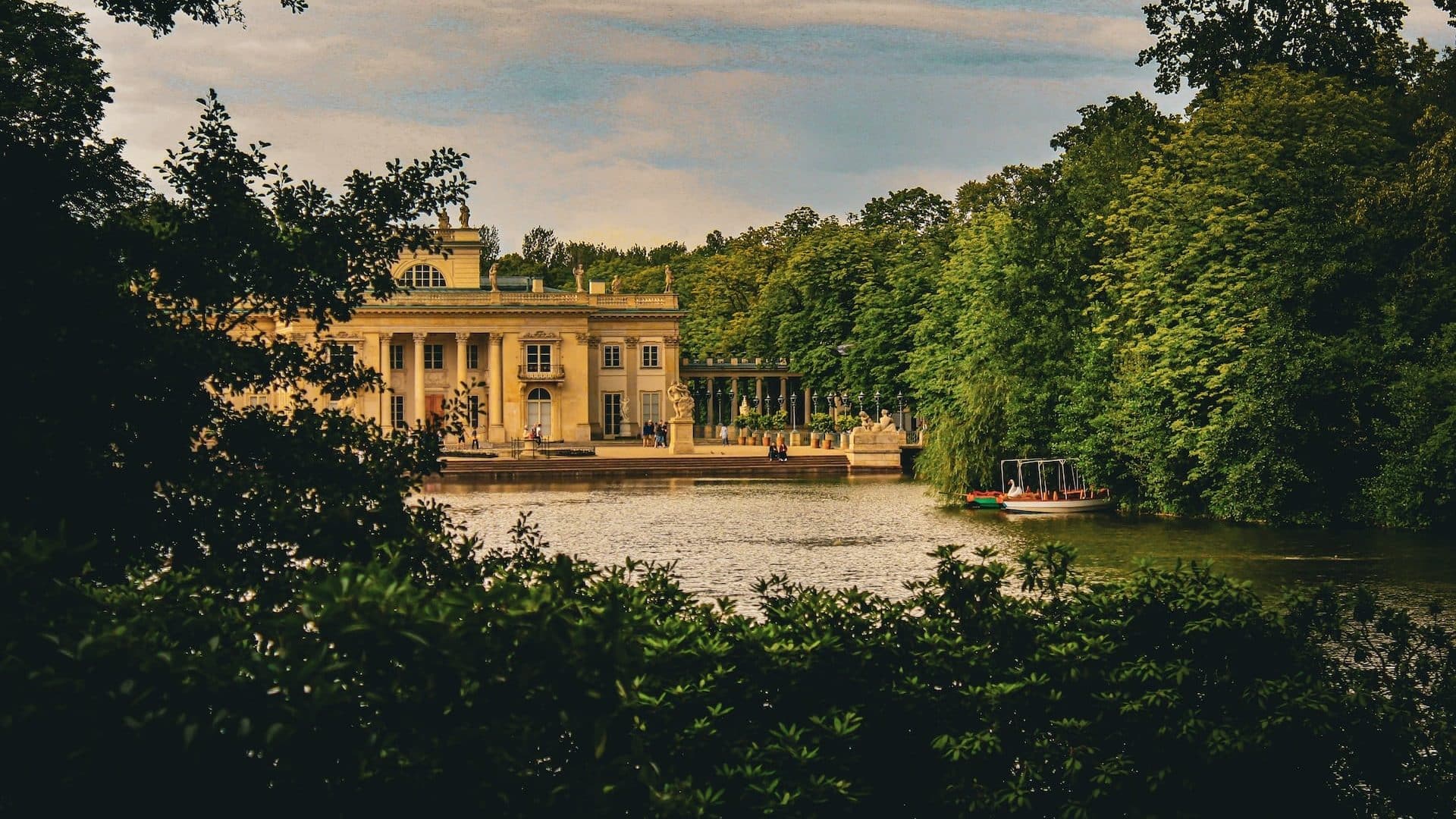
This centrally-located district—the name Śródmieście itself translates to “city center”—encompasses a significant part of Warsaw’s history within its borders.
-
Why is this the best area to stay in Warsaw, Poland:
- Rich historical sites and landmarks
- Wide variety of accommodation options
- Easy access to public transportation
- Proximity to top restaurants and bars
- Vibrant cultural scene and events
- Green spaces and parks
- Shopping opportunities galore
- Safe and walkable streets
- Great local food scene and markets
- Close to key business districts
- Royal Castle and Wilanów Palace
- Łazienki Park
- Palace of Culture and Science
- National Museum
Śródmieście, commonly referred to as Centrum, is located in Warsaw’s central part on the Vistula River’s left bank. As an emblematic area with a rich history and vibrant culture, Śródmieście is a top choice for tourists and business travelers seeking accommodation in Warsaw.
Śródmieście has been the city’s center of political and administrative life since the 14th century. Once enclosed by a defensive wall to protect the city from invaders, remnants of this fortification can still be seen today at the Barbican.
One of the key attractions in Śródmieście is the iconic Pałac Kultury i Nauki (Palace of Culture and Science), a gift from the Soviet Union to Poland in the 1950s. This impressive building serves as a hub for culture, art, science, and entertainment. Its observation terrace on the 30th floor offers visitors a stunning panoramic view of Warsaw.
Other attractions include the Royal Castle, a baroque-style residence originally built in the 16th century, which now serves as a museum, Wilanów Palace and Park, Chopin’s Monument in Łazienki Park, and the National Museum.
The district offers a lively nightlife scene with many bars, pubs, clubs, and restaurants that cater to different tastes. A vast selection of international cuisines can be found at Plac Zbawiciela or Marszałkowska Street.
In terms of transportation options, there are several metro stations, including Centrum Metro Station (M1 line), Ratusz-Arsenał (M1 line), and Świętokrzyska (M1 and M2 lines). A multitude of bus and tram lines also serve this centrally-located district.
Accommodations in Śródmieście range from affordable hostels for budget-conscious travelers to luxurious hotels for those who prefer upscale amenities.
Best Hotels in Warsaw City Center (Śródmieście)
3. Woła
Best area in Warsaw for history lovers
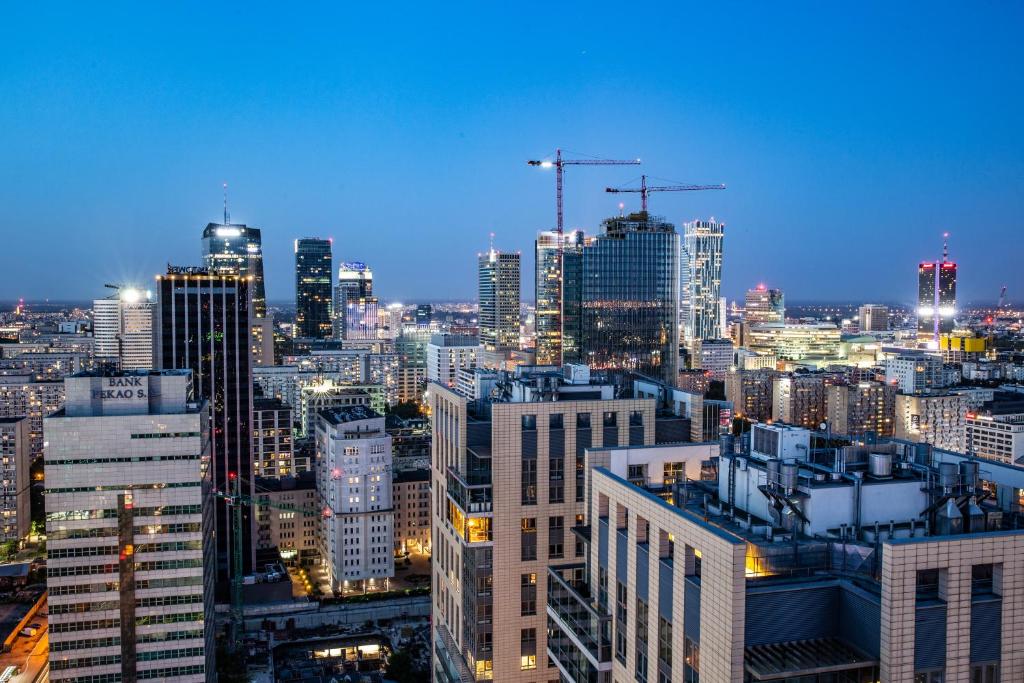
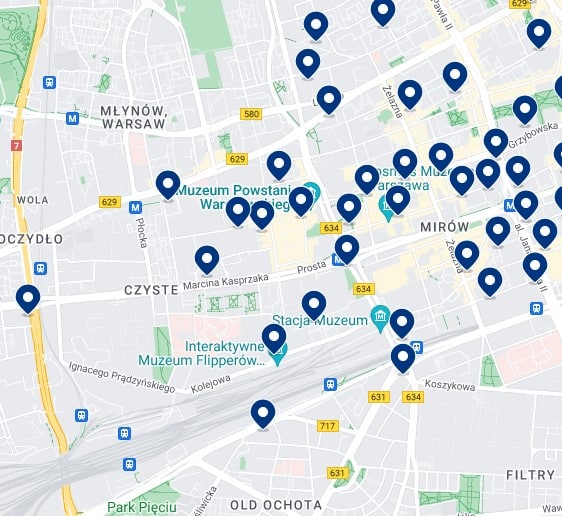
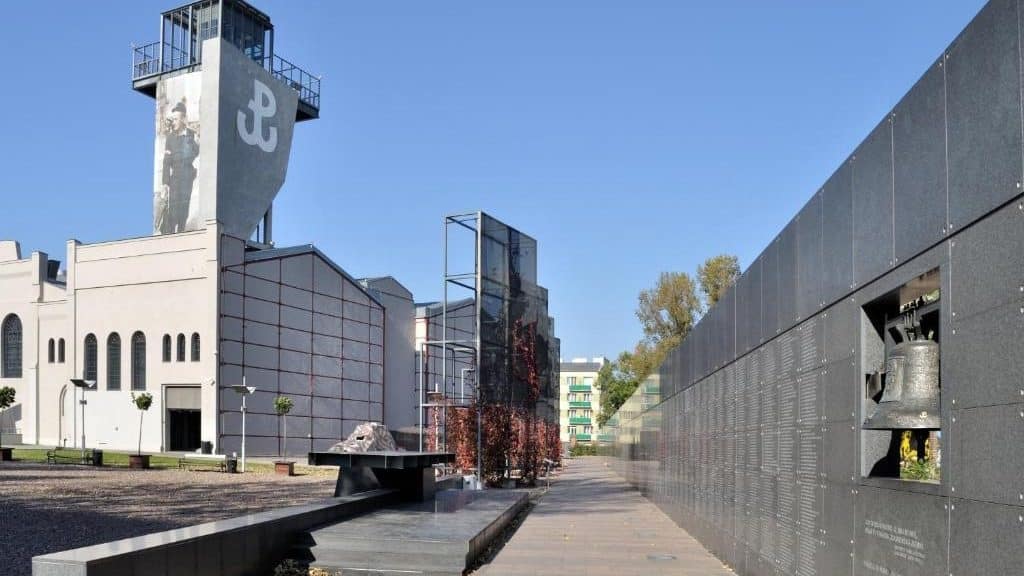
Woła has become a favorite district to stay in Warsaw among leisure and business travelers. Its strategic location, bordering Śródmieście, makes it easily accessible and well-connected.
-
Why is this the best area to stay in Warsaw, Poland:
- Warsaw Main Station
- Affordable accommodation options
- Budget-friendly restaurants
- Proximity to major attractions
- Warsaw Uprising Museum
- Sowinskiego Park
- Arkadia Shopping Center
- Pawiak Prison Museum
Woła is a district situated in the west-central part of Warsaw, Poland. Historically known as the birthplace of Warsaw, Woła represents an interesting and diverse area for travelers to stay when visiting Warsaw.
Woła’s roots can be traced back to the 14th century, with the construction of the St. Lawrence Church, which still stands today as one of the oldest buildings in Warsaw. The area’s industrial growth in the 19th century contributed significantly to its development, and the remnants of its manufacturing past can still be seen in various spots throughout the district.
The most symbolic attraction in Woła is undoubtedly the Warsaw Uprising Museum. Dedicated to preserving the memories of those who fought in the 1944 uprising against Nazi occupation, this comprehensive museum tells one of Poland’s most important stories through multimedia displays and gripping exhibits.
Nearby lies the Pawiak Prison Museum, another significant historical site. Used by the Nazis during World War II, it now serves as a poignant reminder and memorial for political prisoners held captive during that time.
Woła also offers modern architectural marvels such as Prosta Tower and Warsaw Trade Tower, which offer panoramic views of the city’s skyline. For a natural respite, head to Szymański Park or Moczydło Park.
Woła is serviced by several tram lines and buses that connect this area with other parts of Warsaw. Key transport hubs include the Górczewska metro station on Line M2.
Warsaw Main Station, also known as Warszawa Centralna, holds significant importance in Woła as it serves as the major railway hub for domestic and international travel. The station provides access to long-distance and high-speed services, such as the EuroCity trains and Intercity Express connections. Additionally, local S-Bahn lines extend service throughout the surrounding regions.
Best Hotels in Woła (Warsaw)
4. Praga-Północ
Best area to stay in Warsaw for alternative nightlife
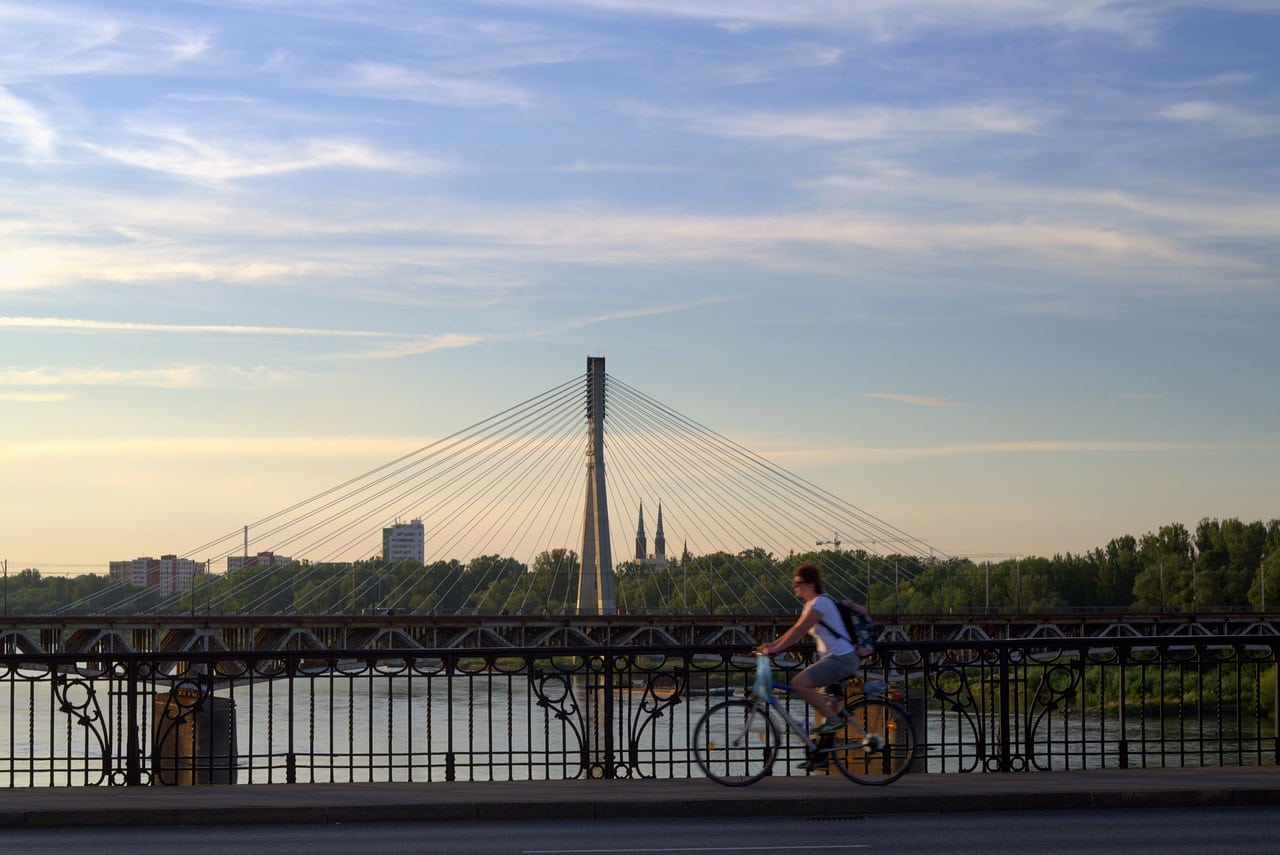
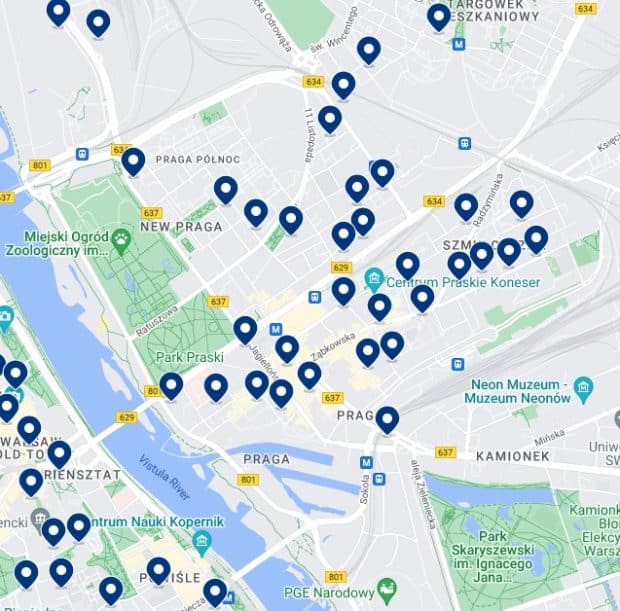
Situated on the right bank of the Vistula River, Praga-Północ is one of the coolest neighborhood in Warsaw.
-
Why is this the best area to stay in Warsaw, Poland:
- Trendy art galleries and studios
- Vibrant nightlife at Elektoralna Street
- Proximity to the Vistula River
- Praga Park and Zoo
- Easy access to public transportation
- Diverse dining options and local cuisine
- Różycki Bazaar
- Soho Factory
- Neon Museum
- Świętokrzyski Bridge
Praga-Północ is a district located northeast of Warsaw’s city center, just across the river from the Old Town. It offers a unique and less touristy experience for travelers looking to explore Warsaw.
This area is known for its rich history and distinct atmosphere. Praga-Północ was largely untouched during World War II, which means that many of its original buildings and architectural features have been preserved.
One of the main attractions in Praga-Północ is the historic Soho Factory. This former industrial complex has been transformed into a thriving cultural and artistic hub with galleries, studios, shops, and trendy restaurants. It’s a great place to soak up the creative energy of the district and explore local art and design.
Another significant landmark in Praga-Północ is the Praga Museum of Warsaw. This museum showcases the history and culture of the Praga district, allowing visitors to learn about the area’s past and its role in shaping Warsaw’s identity. The museum also hosts temporary exhibitions and cultural events that highlight the local heritage.
The Orthodox Cathedral of the Holy Mary Magdalene is a stunning Orthodox church that dates back to the 19th century and is known for its beautiful golden onion domes.
Praga-Północ also offers a vibrant nightlife scene. There are many unique bars, clubs, and live music venues where locals gather to socialize and enjoy the evening. It’s an excellent opportunity to immerse yourself in the local culture and experience the district’s energetic ambiance.
In terms of transportation, Praga-Północ is well-connected to the rest of Warsaw. Bus and tram lines run through the district, making it easy to reach other parts of the city. The Warsaw East Railway Station is also located in Praga-Północ, providing convenient access to regional and international train connections.
Best Hotels in Praga-Północ (Warsaw)
5. Praga-Południe
A great alternative across the river from the Old Town
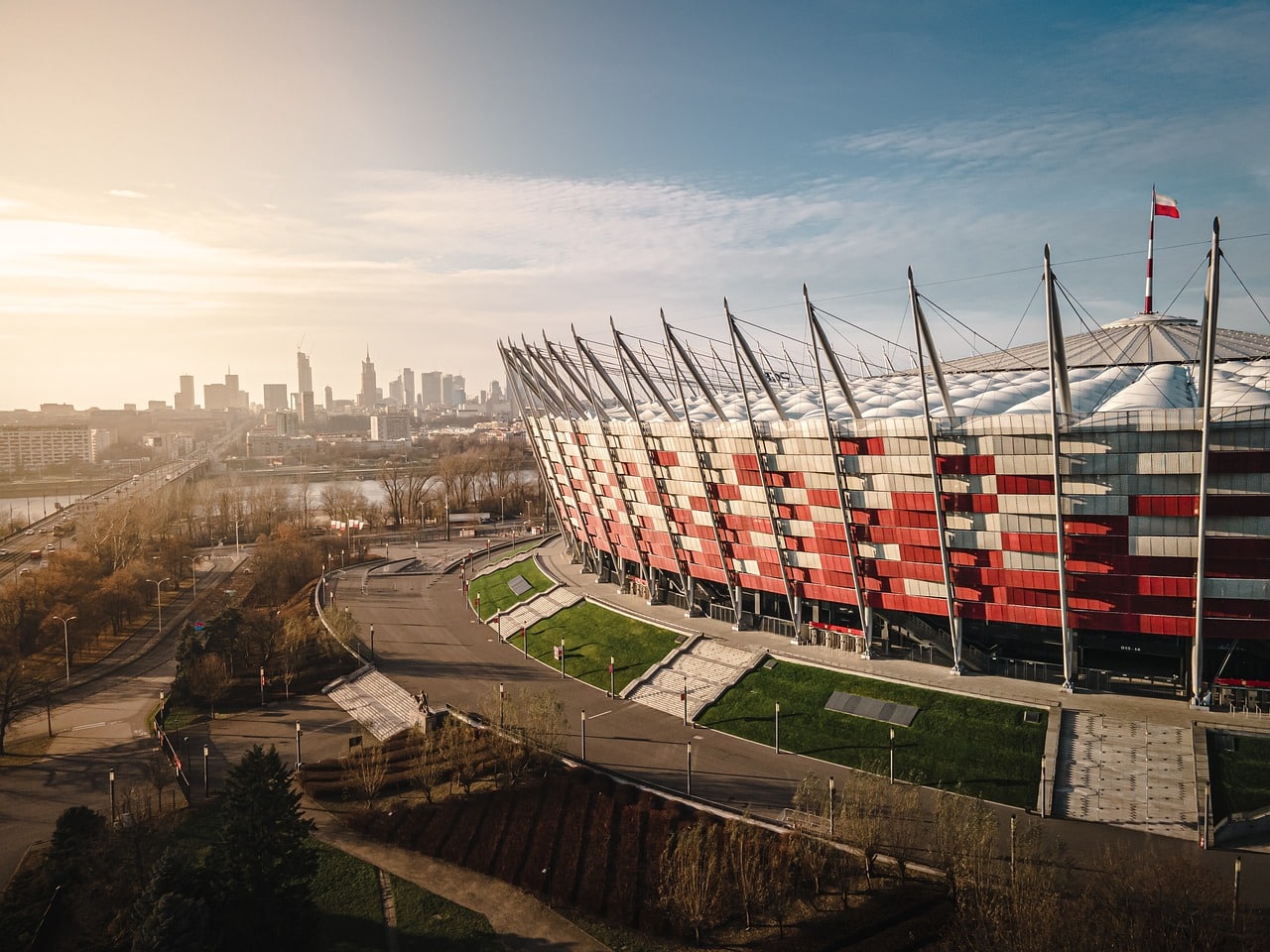
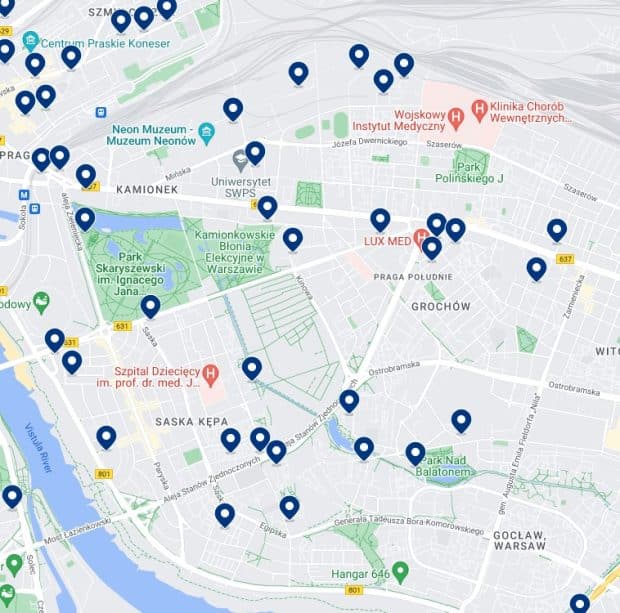
Praga-Południe boasts a calm and welcoming atmosphere that contrasts with the bustling city center.
-
Why is this the best area to stay in Warsaw, Poland:
- Affordable accommodations
- National Stadium
- Skaryszewski Park
- Soho Factory
- Neon Museum
- Vistula River
Praga-Południe is located on the east side of the Vistula River.
One of the main attractions in Praga-Południe is the Skaryszewski Park, which was designed by Franciszek Szanior in 1906. This verdant park, known for its lush landscapes and picturesque ponds, provides a tranquil oasis amid the urban jungle. A visit to The Promenade at Kamionek Street offers an opportunity for a stroll along colorful tenement buildings adorned with street art dating back to the pre-war period.
Another popular landmark is the National Stadium, built for the 2012 UEFA European Football Championship. St. John Climacus Orthodox Church in Saska Kępa also stands out for its striking gold-domed architecture.
Navigating around Praga-Południe is straightforward due to an extensive network of public transportation options. The district is serviced by several tram lines (7, 9, 22, 24, 26), providing easy access to other parts of Warsaw. Dworzec Wilenski metro station on the M2 line connects Praga-Południe with the western part of Warsaw across the Vistula River.
Best Hotels in Praga-Południe (Warsaw)
6. Mokotów
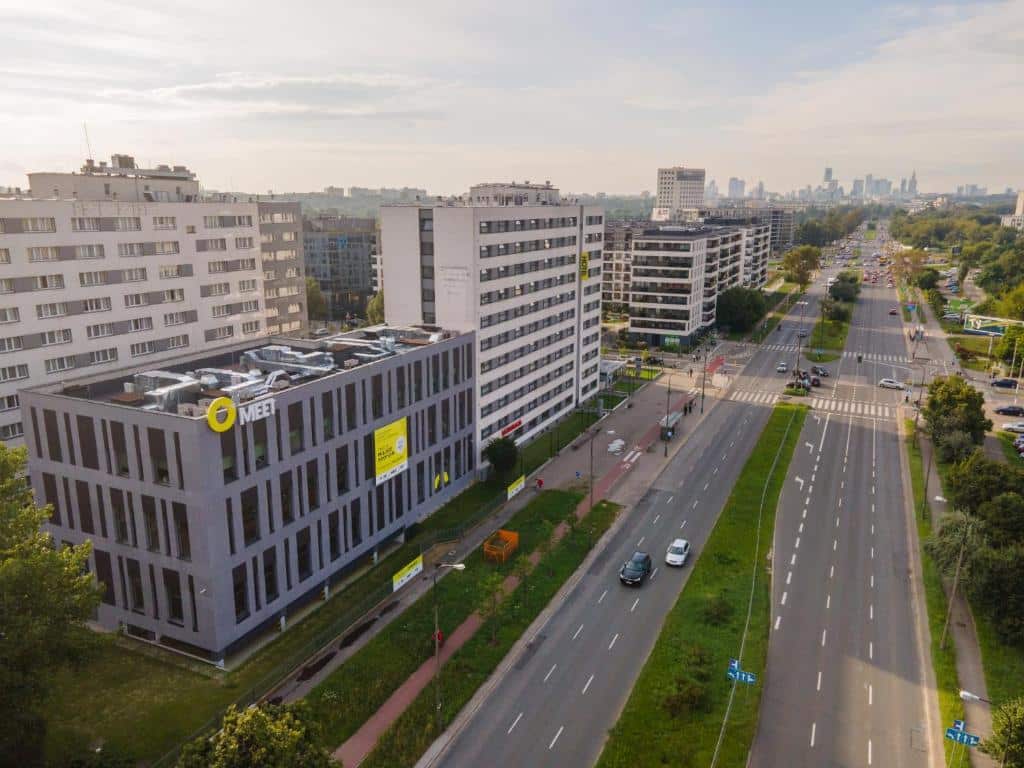
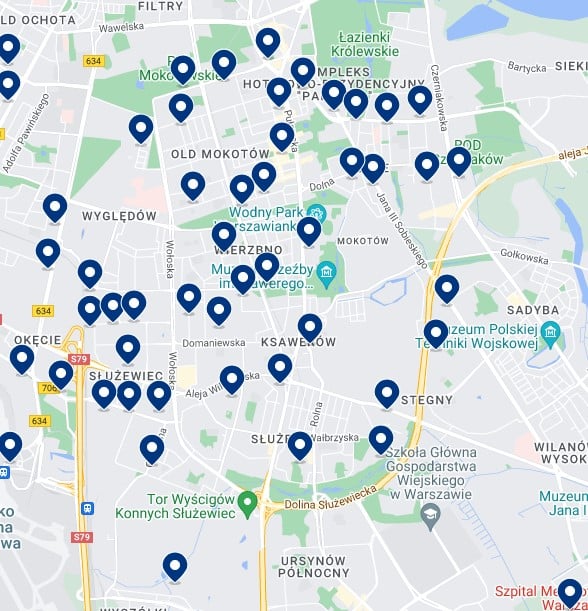
Mokotów‘s location outside the city center generally results in more affordable rates than those found in the heart of Warsaw.
Mokotów is located directly south of the city center and houses a mix of residential neighborhoods, commercial centers, and green spaces. The district is divided into several smaller neighborhoods, each with its own distinct character.
One of Mokotów’s main attractions is the Royal Łazienki Park, which is home to the magnificent Palace on the Isle – once a royal residence and now a popular museum. The park also boasts Chopin’s Monument, beautiful botanical gardens, and an amphitheater that hosts summer concerts.
Public transport in Mokotów is well-developed, with several tram and bus lines connecting the district to other parts of Warsaw. The metro line M1 serves Mokotów with key stations such as Pole Mokotowskie, Raclawicka, Wierzbno, Wilanowska, and Służew.
Best Hotels in Mokotów
7. Żoliborz
A quiet neighborhood north of the city center
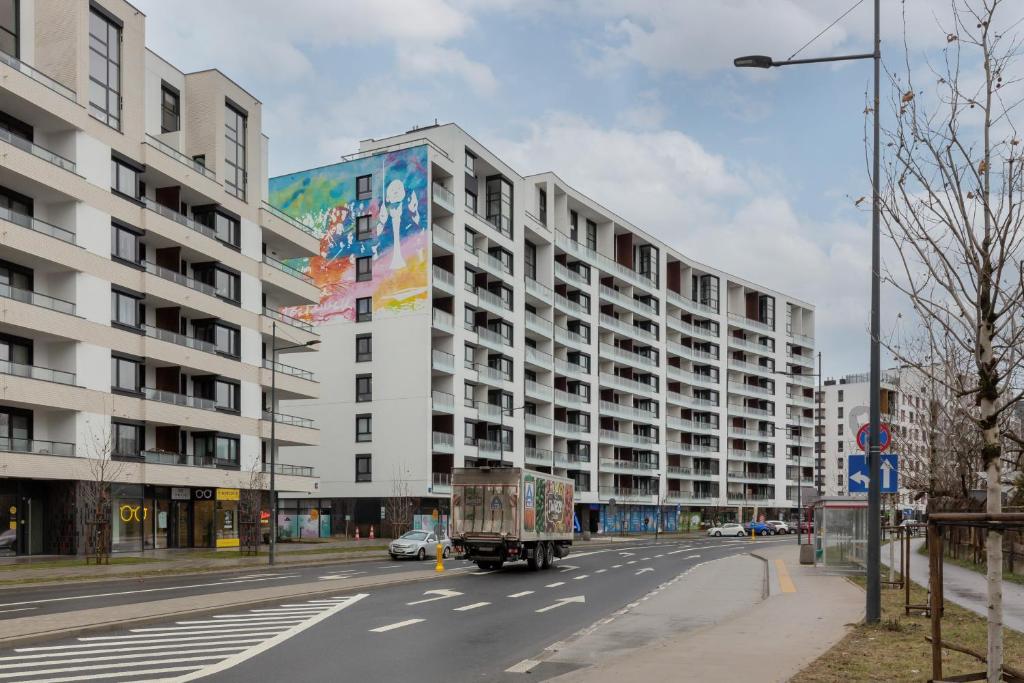
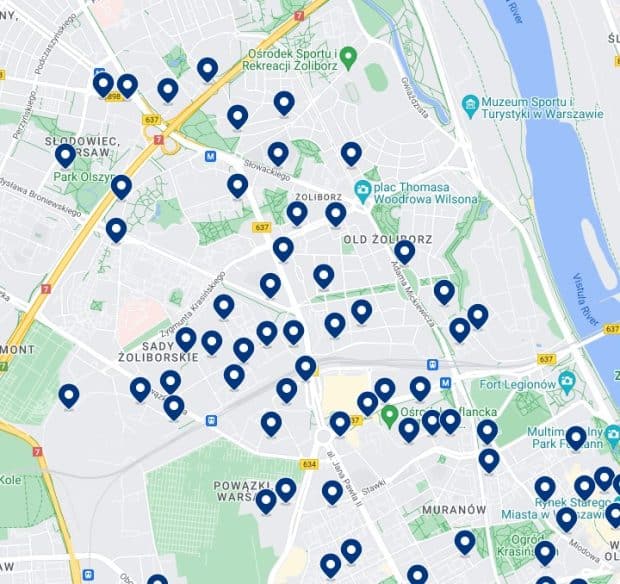
Żoliborz is known for its carefully planned streets, green spaces, and modernist architecture influenced by the garden city movement.
Żoliborz, a district in the northern part of Warsaw, offers an alternative to staying in the bustling city center.
The history of Żoliborz dates back to the early 20th century when it was initially designed as a garden city. This early vision can still be seen today with the area’s abundance of greenery and elegant architecture. One of the major historical landmarks in Żoliborz is the Warsaw Citadel, a 19th-century fortress that played a significant role in Polish history. The citadel now houses a museum dedicated to Warsaw’s military history and is open to the public.
The area is served by multiple tram lines as well as metro line M1, with stations including Plac Wilsona and Marymont providing easy access to other parts of the city.
Best Hotels in Żoliborz
Where to Look for Accommodation in Warsaw: Useful Info
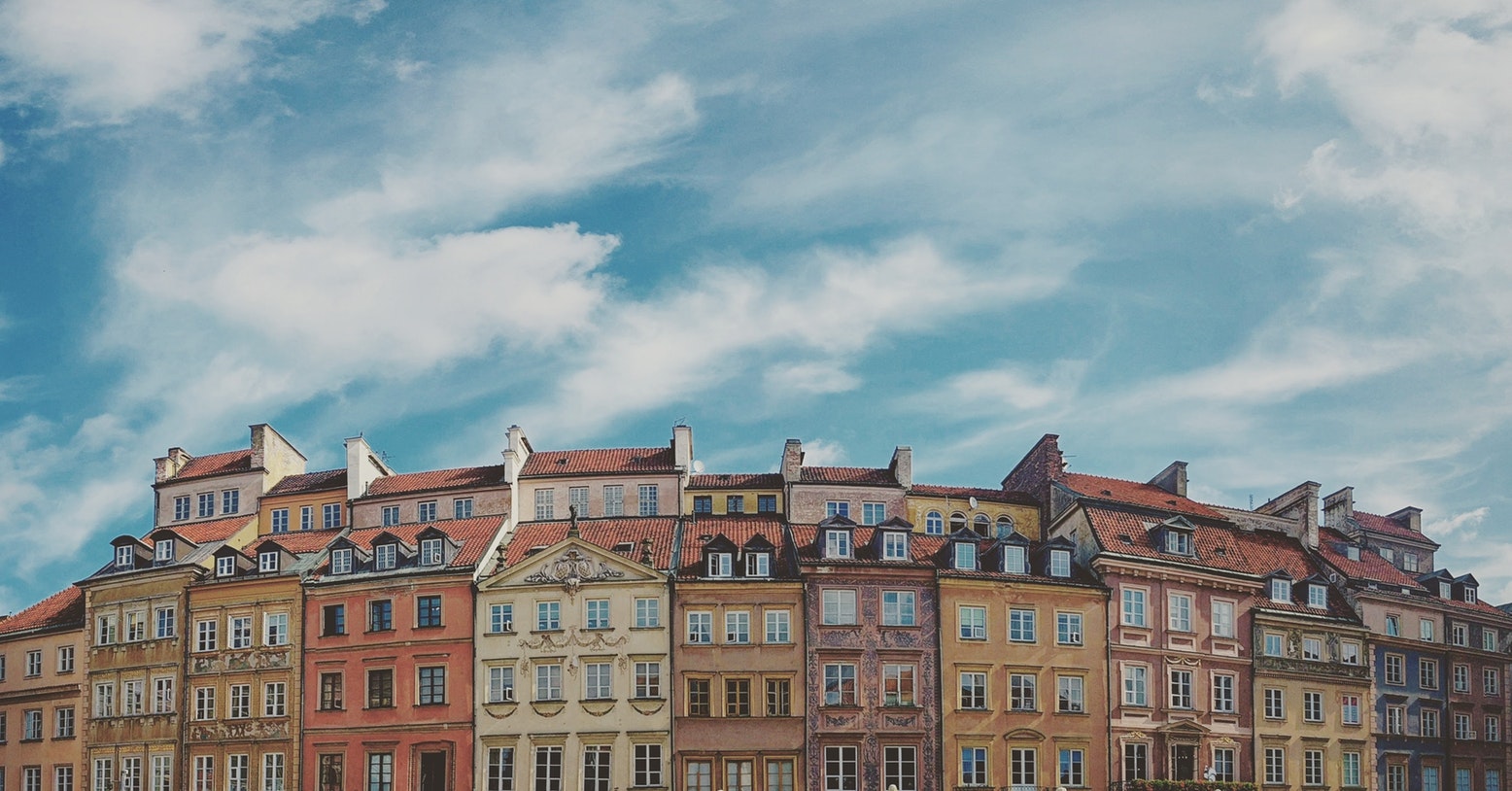
Warsaw, the capital of Poland, experiences a continental climate characterized by cold winters and cool summers. The warmest months are June and August, with July being rainy. Winters in Warsaw are long, cold, and windy.
The city is known for its Historical Quarter, which was heavily reconstructed after the Second World War. Its architectural heritage consists of Gothic, Neoclassical, and Renaissance-styled palaces, churches, and mansions. Some of the most notable monuments in Warsaw include the Old Town Square, Castle Square, Royal Palace, Krakowskie Przedmiescie Street, the Uprising Museum, the Palace of Culture, and the Wilanow Palace.
Warsaw’s transport system is efficient due to the well-connected bus, tram, and metro routes that reach every corner of the city. This makes traversing large avenues and reaching various destinations relatively simple.
For tourists seeking accommodation in Warsaw, the Historic Center is a recommended location. The Center is split into two distinct neighborhoods: Stare Miasto (Old Town) and Nowe Miasto (New Town), both of which are part of the Srodmiescie District. Accommodation options in Warsaw’s Old Town cater to a variety of budgets and preferences without compromising on quality or location.
In terms of approximate prices for accommodations during different times of the year in Warsaw, it is generally less expensive during the winter months as tourist activity decreases due to the cold weather. Conversely, hotel prices increase during June and August as these months attract more visitors due to warmer temperatures.
Where to Stay in Warsaw: Frequently Asked Questions
The best area to stay in Warsaw is Śródmieście, which is the city’s central district. This area has a variety of accommodation options, from luxurious hotels to budget-friendly hostels. Staying in Śródmieście allows visitors easy access to major attractions, such as the Royal Castle, Wilanów Palace, and the Old Town. The district also has plenty of restaurants, shopping centers, and public transportation options.
The best place to stay in Warsaw for nightlife is around Nowy Świat and Mazowiecka Street, located within the city center. These streets are known for their vibrant nightlife scene, home to numerous bars, clubs, and late-night eateries. Visitors in this area will have no trouble finding a place to enjoy a drink or dance the night away.
Mokotów is considered one of the safest neighborhoods in Warsaw due to its low crime rates and well-maintained streets. This residential area offers visitors a quieter alternative compared to the bustling city center while still being easily accessible via public transportation. Mokotów hosts several parks, museums, cafes, and other attractions that make it an ideal location for a relaxing stay.
The main area of Warsaw is its city center – Śródmieście – which can be further divided into two parts: Śródmieście Północne (North) and Śródmieście Południowe (South). This central district includes major tourist attractions such as the Royal Castle, Old Town Square, and Lazienki Park. The area boasts numerous dining, shopping, cultural venues, and accommodation options suitable for various budgets and preferences.
The area known as ‘city center’ in Warsaw encompasses the district of Śródmieście, a diverse hub featuring important tourist attractions, an array of shopping centers, and numerous dining options. This central zone is ideal for visiting historical sites as well as exploring Warsaw’s vibrant nightlife.
Warsaw is considered to be one of the most affordable cities in Europe, making it a popular destination for budget-conscious travelers. Visitors can find reasonably priced accommodations, food, and entertainment throughout the city. Public transportation is also inexpensive and efficient, allowing tourists to explore Warsaw without breaking the bank.
Warsaw is indeed a walkable city, with many of its key attractions located within walking distance of each other. The Old Town, Royal Route, and other popular sites can be easily explored on foot. Moreover, the city boasts well-maintained sidewalks and pedestrian-friendly streets, making walking a pleasant and convenient mode of transport for visitors.
Spending at least three to four days in Warsaw is recommended in order to fully appreciate the city’s rich history and vibrant culture. This timeframe allows visitors ample opportunity to explore major attractions such as Wilanów Palace, Lazienki Park, and the Warsaw Uprising Museum. Additionally, it provides enough time to enjoy the city’s dining scene, nightlife, and local events.
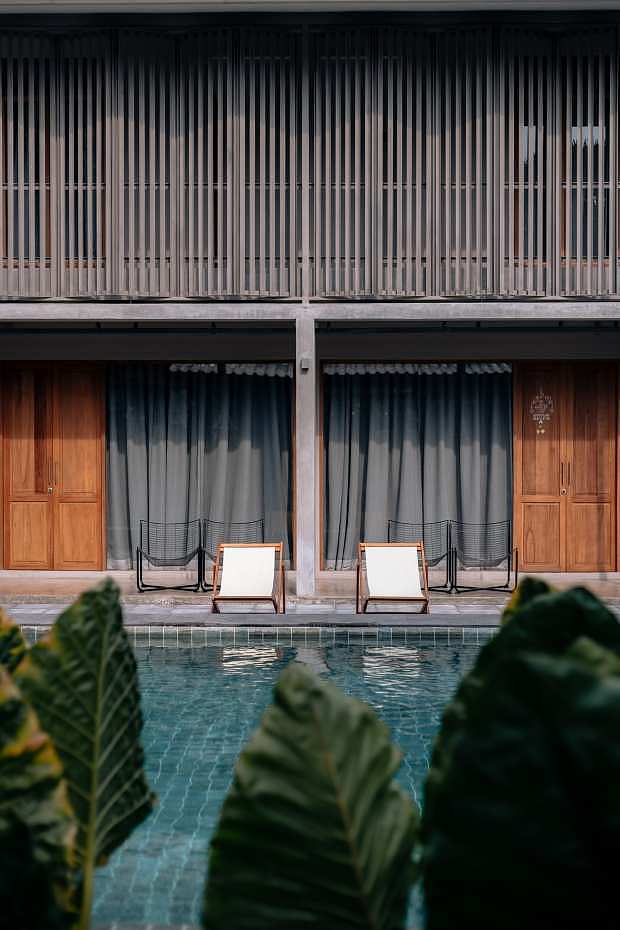


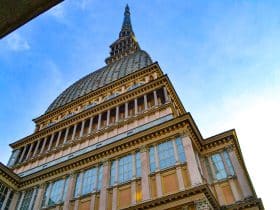
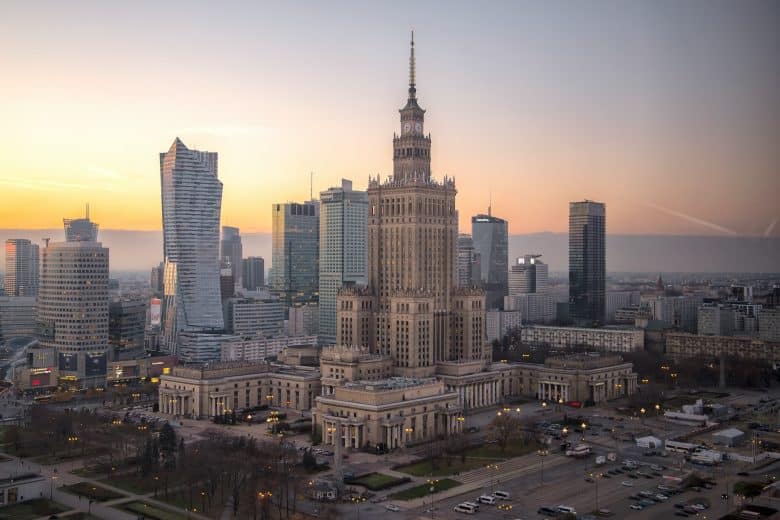
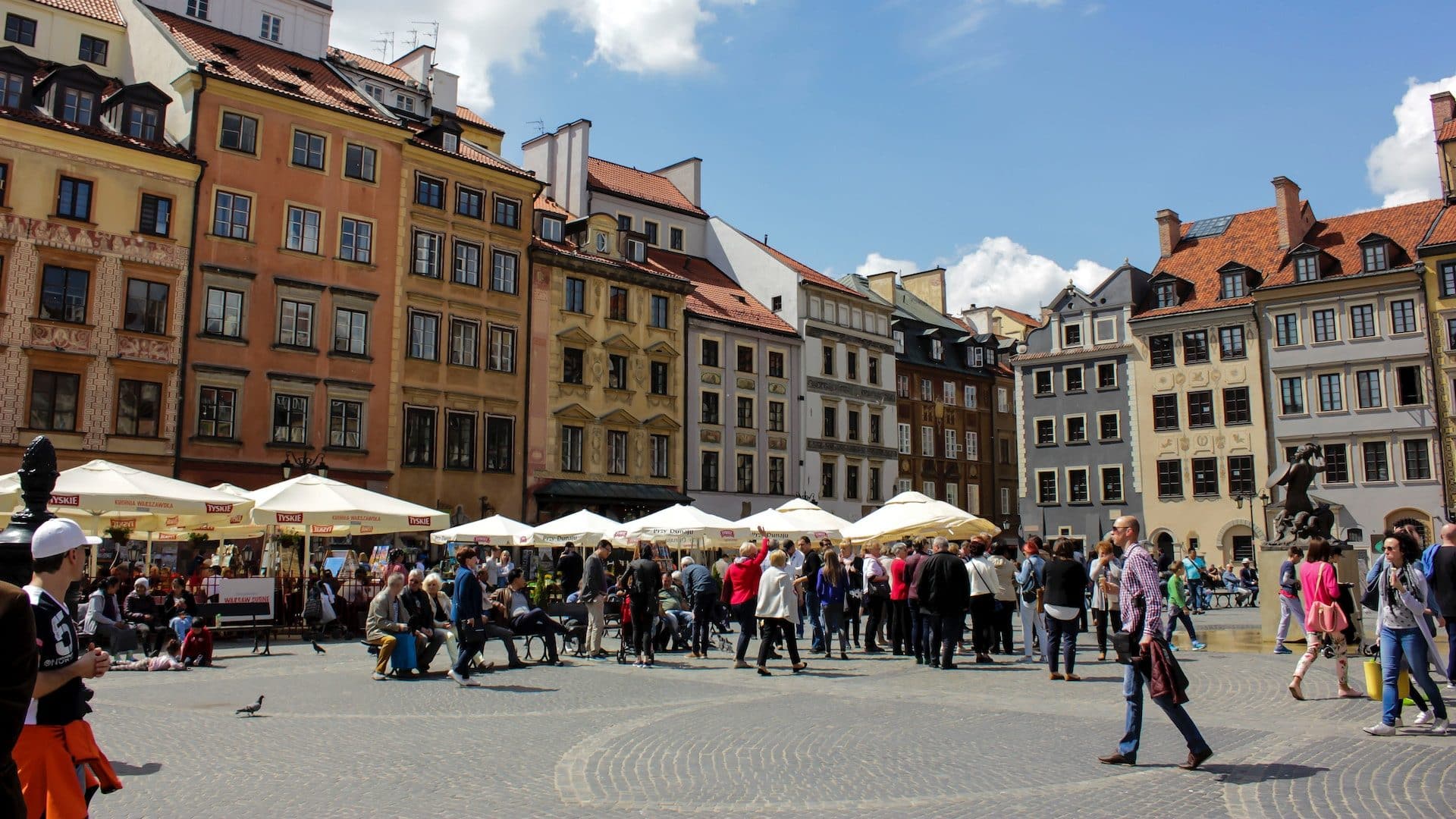
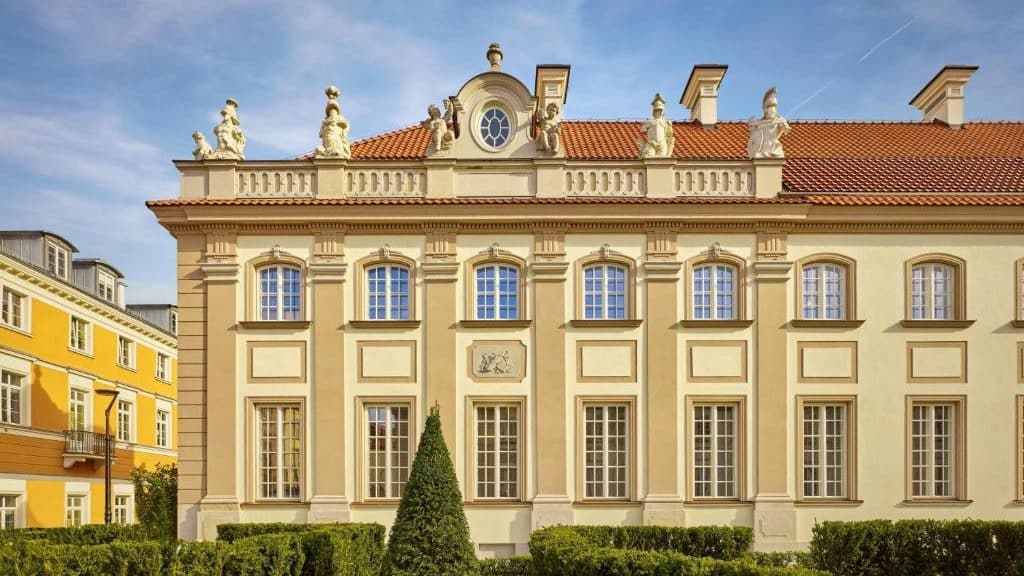
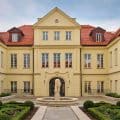



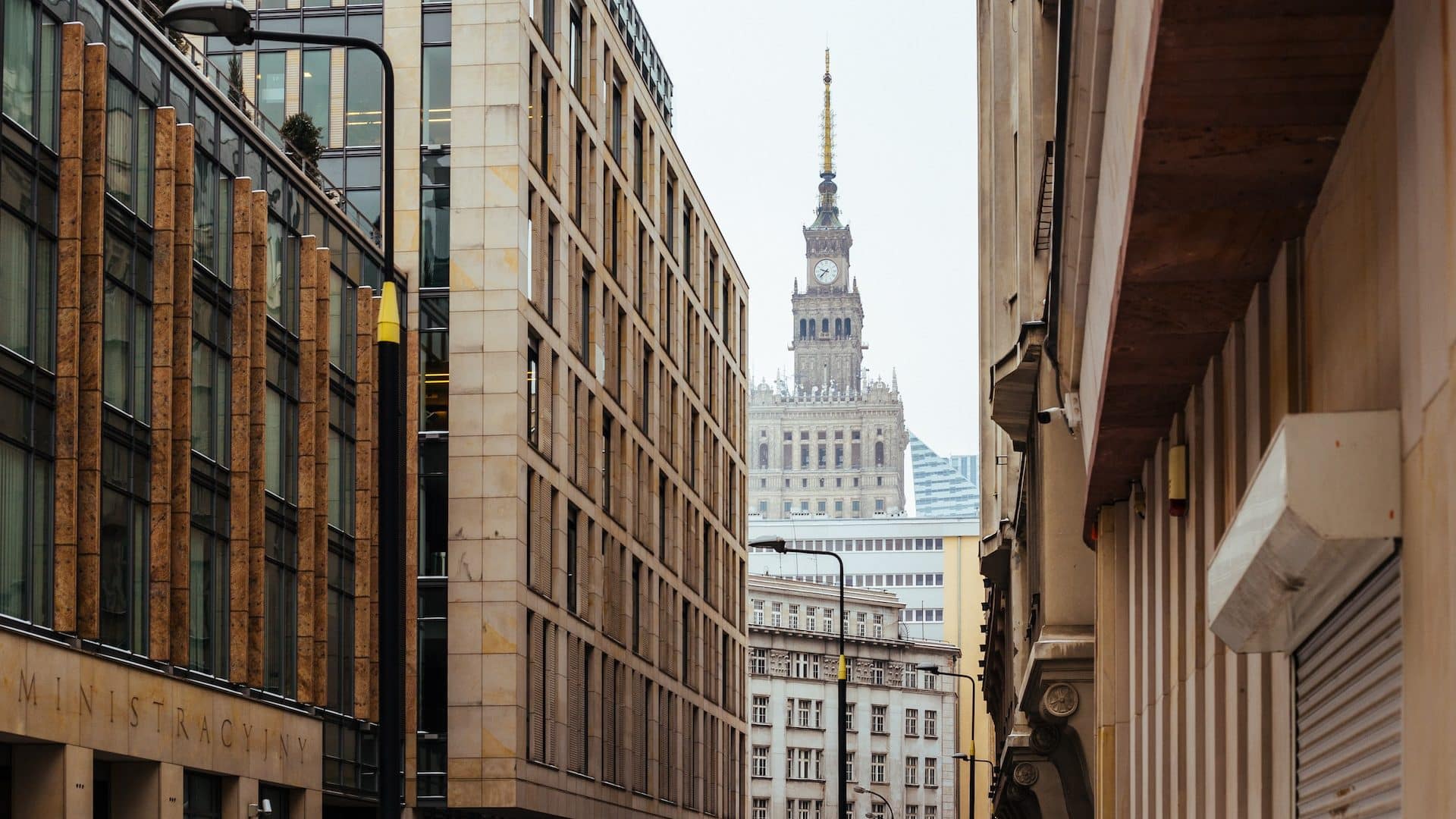
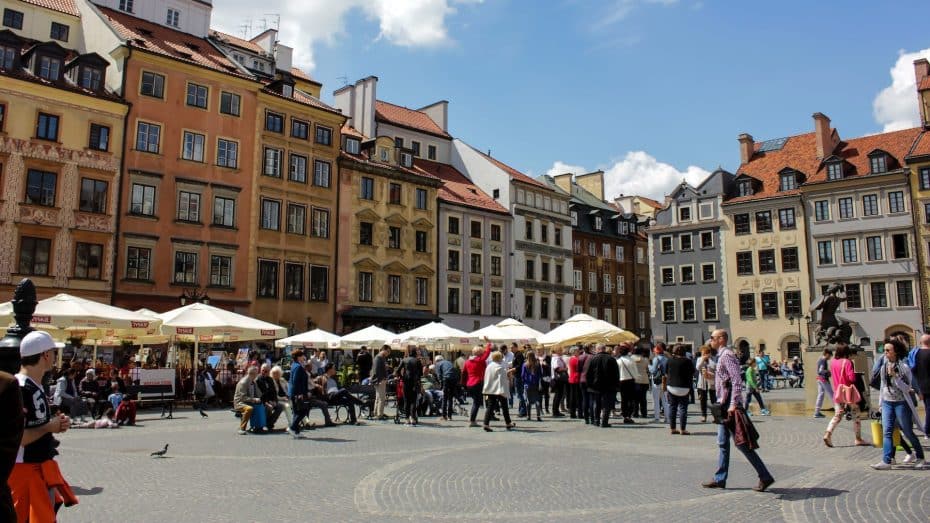
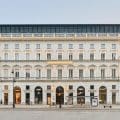






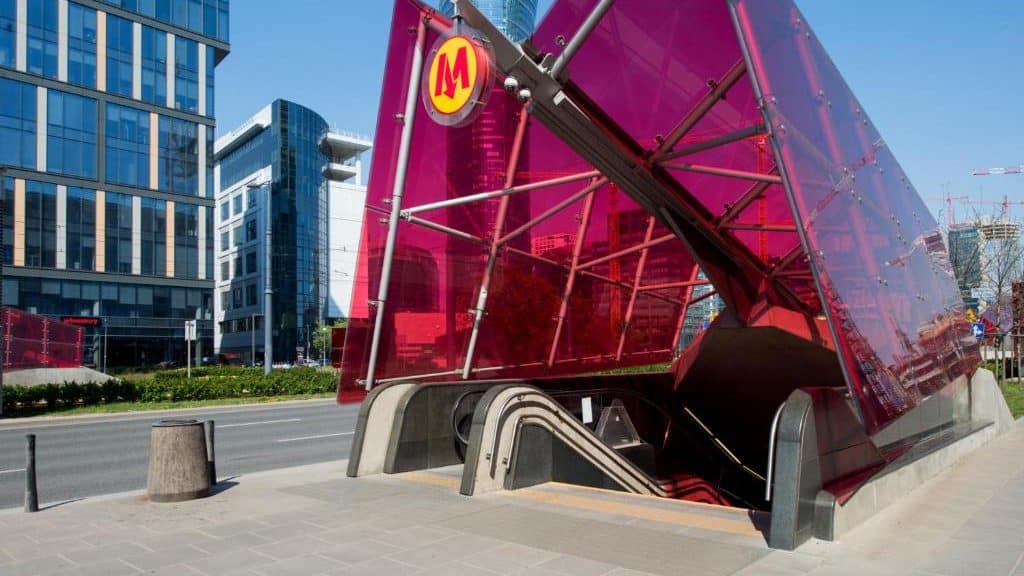
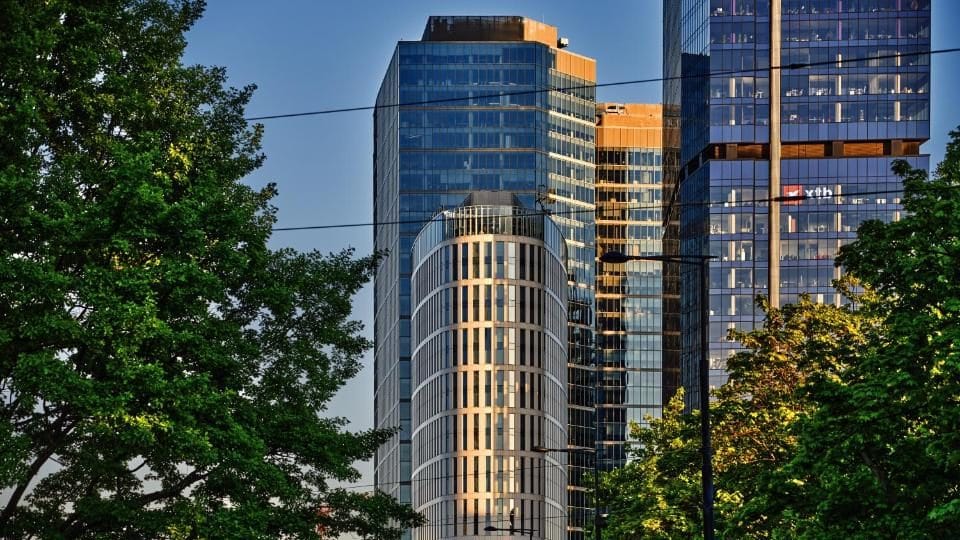

















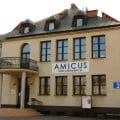


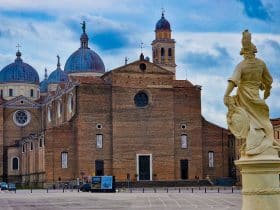

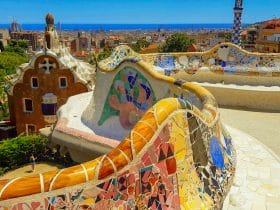
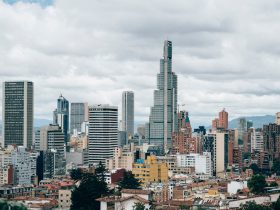

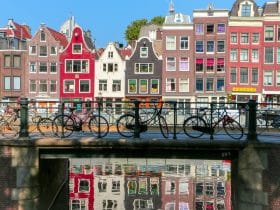
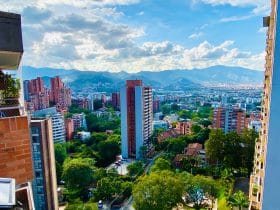


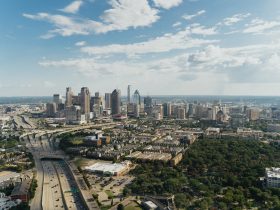
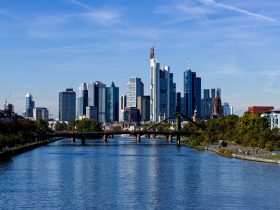
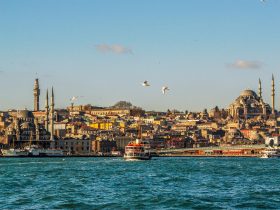


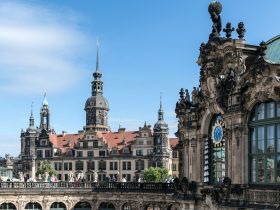


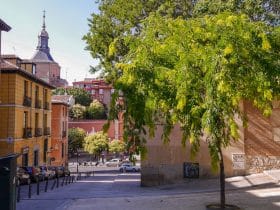
Leave a Reply
View Comments